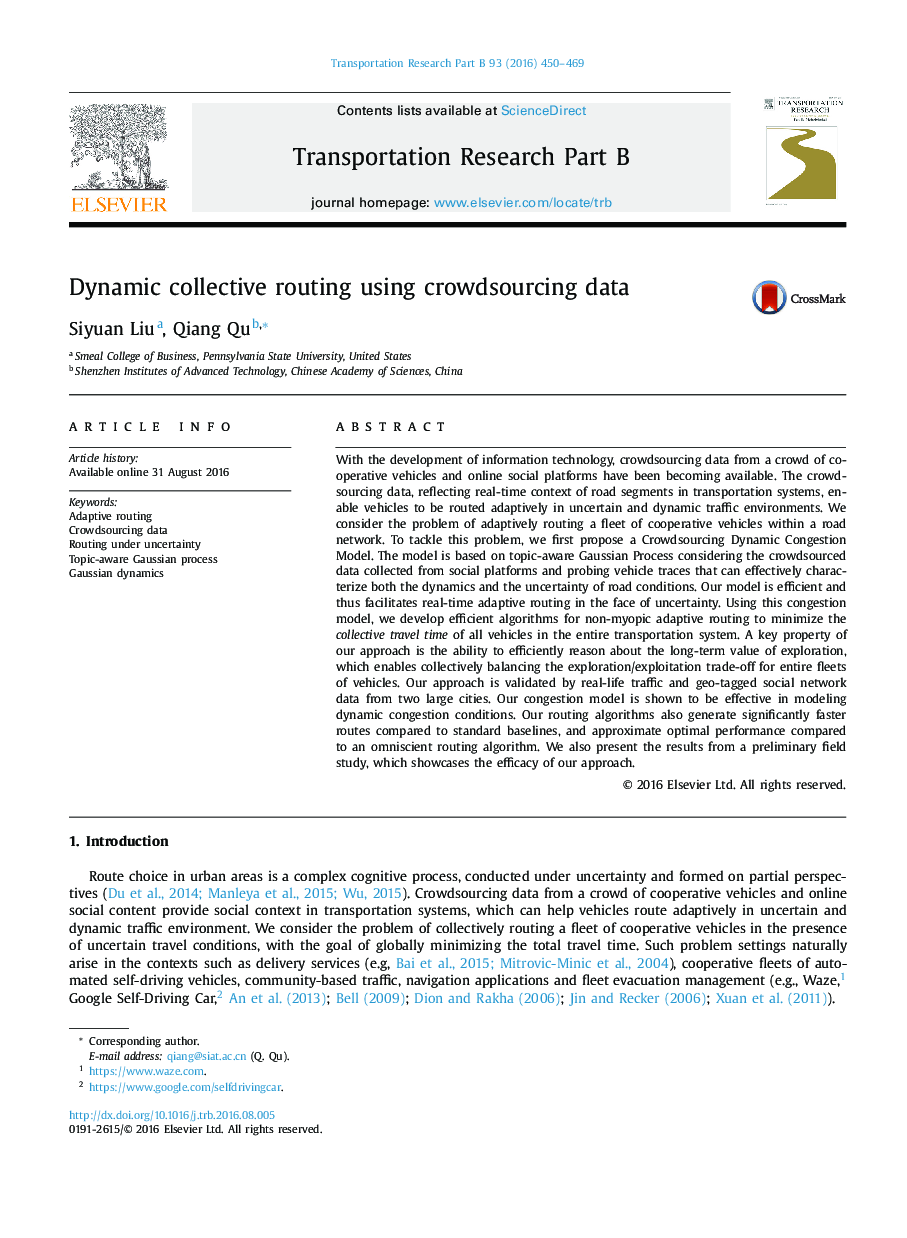| کد مقاله | کد نشریه | سال انتشار | مقاله انگلیسی | نسخه تمام متن |
|---|---|---|---|---|
| 5127194 | 1378546 | 2016 | 20 صفحه PDF | دانلود رایگان |
- Applications: Delivery services, cooperative fleets of self-driving vehicles, community-based traffic, navigation applications and fleet evacuation management.
- Problem: Adaptively routing a fleet of cooperative
vehicles within a road network.
- Solution: A Crowdsourcing Dynamic Congestion Model based on Gaussian Process considering crowdsourcing data from social platforms and probing vehicle traces.
- Results: Validated by
traffic and social network data, and a preliminary field study, which showcases the efficacy of our approach.
With the development of information technology, crowdsourcing data from a crowd of cooperative vehicles and online social platforms have been becoming available. The crowdsourcing data, reflecting real-time context of road segments in transportation systems, enable vehicles to be routed adaptively in uncertain and dynamic traffic environments. We consider the problem of adaptively routing a fleet of cooperative vehicles within a road network. To tackle this problem, we first propose a Crowdsourcing Dynamic Congestion Model. The model is based on topic-aware Gaussian Process considering the crowdsourced data collected from social platforms and probing vehicle traces that can effectively characterize both the dynamics and the uncertainty of road conditions. Our model is efficient and thus facilitates real-time adaptive routing in the face of uncertainty. Using this congestion model, we develop efficient algorithms for non-myopic adaptive routing to minimize the collective travel time of all vehicles in the entire transportation system. A key property of our approach is the ability to efficiently reason about the long-term value of exploration, which enables collectively balancing the exploration/exploitation trade-off for entire fleets of vehicles. Our approach is validated by real-life traffic and geo-tagged social network data from two large cities. Our congestion model is shown to be effective in modeling dynamic congestion conditions. Our routing algorithms also generate significantly faster routes compared to standard baselines, and approximate optimal performance compared to an omniscient routing algorithm. We also present the results from a preliminary field study, which showcases the efficacy of our approach.
Journal: Transportation Research Part B: Methodological - Volume 93, Part A, November 2016, Pages 450-469
